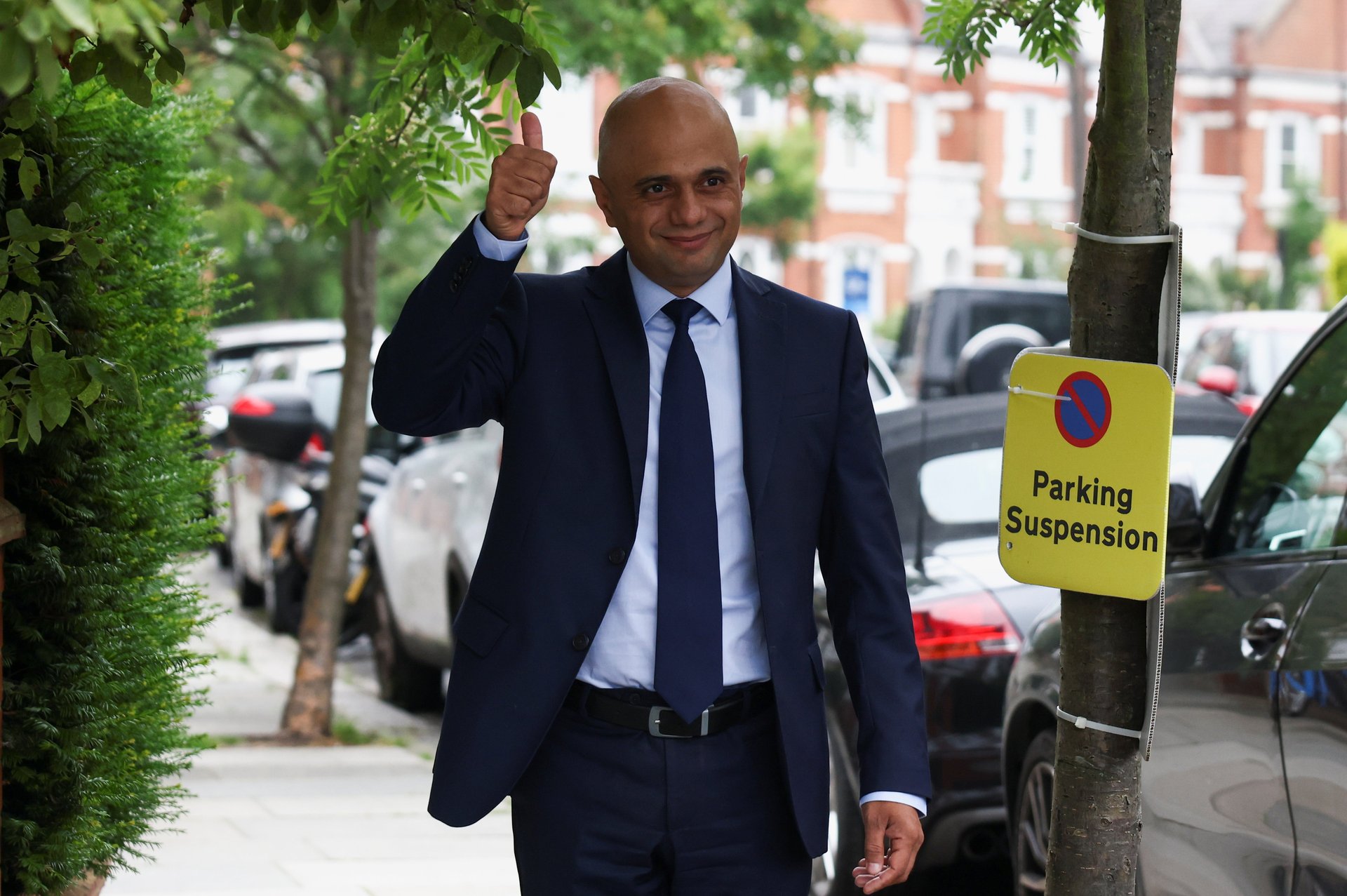South Asians are a dominant force in the UK government, but it’s nothing to do with diversity
With the UK’s Covid-19 crisis not yet over, the last thing prime minister Boris Johnson needed was to find a new health secretary. But after Matt Hancock—that “poor man,” according to Queen Elizabeth—resigned after a tabloid exposed his affair with an aide, in comes Sajid Javid to oversee the remainder of Britain’s already-successful vaccination program, and ensure that nothing major goes wrong in the next few months.


With the UK’s Covid-19 crisis not yet over, the last thing prime minister Boris Johnson needed was to find a new health secretary. But after Matt Hancock—that “poor man,” according to Queen Elizabeth—resigned after a tabloid exposed his affair with an aide, in comes Sajid Javid to oversee the remainder of Britain’s already-successful vaccination program, and ensure that nothing major goes wrong in the next few months.
Javid, who is of Pakistani descent, becomes the third South Asian minister at the very top table, joining home secretary Priti Patel, and chancellor Rishi Sunak, both of Indian origin. Between them, they effectively run the country; their combined portfolios include healthcare, the economy, immigration, and law enforcement. Alongside them in the cabinet are Alok Sharma, the UK’s COP26 envoy, who was born in India, and Kwasi Kwarteng, the business secretary, whose parents are from Ghana.
But their success, lauded by conservative commentators as a shining example of a commitment to representation and diversity, is perhaps more about political expediency—all ended up backing the prime minister on Brexit, for example, as did many British South Asians—and individual competence than the result of corporate-style diversity, equity, and inclusion (DEI) policies.
Why are there so many South Asians in the UK cabinet?
In the UK, the uncomfortable umbrella term for people of color is BAME (Black, Asian and minority ethnic). Over a fifth (21%) of the cabinet is BAME, compared to 11% as an overall proportion of England and Wales, and only 4% in Scotland.
On that level, people of color are over-represented in government. To some extent it is true that the current level of South Asian representation is the result of active efforts by the Conservative Party over decades, and further accelerated in recent years, to attract voters and members from a group that is considered naturally conservative. “The Conservative Party shares the values of many people of South Asian heritage,” says Natasha Asghar, who represents South Wales East in the Senedd (the Welsh parliament), “such as self-reliance, enterprise, and a strong belief in family.”
Her father Mohammad held the same seat until his death in 2020. The party launched a fund in his name, she says, “which gave funding for ethnic minority candidates who stood for seats across Wales in the most recent election.” She doesn’t mention diversity—instead, she says the party is “open and meritocratic.”
Through a DEI lens, there are inconsistencies in the cabinet. There is only one woman of color. There is only one Black person. Three of the five BAME cabinet ministers attended private schools, including Winchester (Sunak) and Eton (Kwarteng), two of the most exclusive, expensive schools in the world. Is this really diversity?
More profoundly, perhaps, can true representation ever be achieved?
The government’s “leveling up” agenda
Like many nation-states, the UK is a collection of distinctive regions bound together by history, language, legacies of conquest, and an often intangible sense of collective identity that evolves over time. What may be considered representative of London or Birmingham, big cities with constant migration—both from inside and outside the UK—powerful economies, and large BAME populations, makes less sense in Cornwall or Lincolnshire or the Scottish Highlands.
This cuts both ways. The government’s regional “leveling up” agenda, which ostensibly aims to create jobs, commit investment, and raise standards of living outside the country’s economic powerhouses, largely ignores the poverty and lack of opportunity that also exist in the large metropolises. DEI policy, however well intentioned, cannot address this complexity.
Criticism from within the South Asian community
Javid has a working-class background—his father was a bus driver—and attended a local public school. He is not a star graduate from Oxford or Cambridge, either. On this superficial level, he ought to be a role model for many young British South Asians. Priti Patel is the product of a similar environment.
In fact, they are often heavily criticized by their own for their conservative politics. (Usually with non-sequiturs on Twitter, a forum that is also not a true representation of anything.) Whether they’re popular or not, for many in Britain their South Asian heritage is far less important than what they actually say and do. With an election several years away, and the government enjoying a large majority, they will continue to have a major impact.